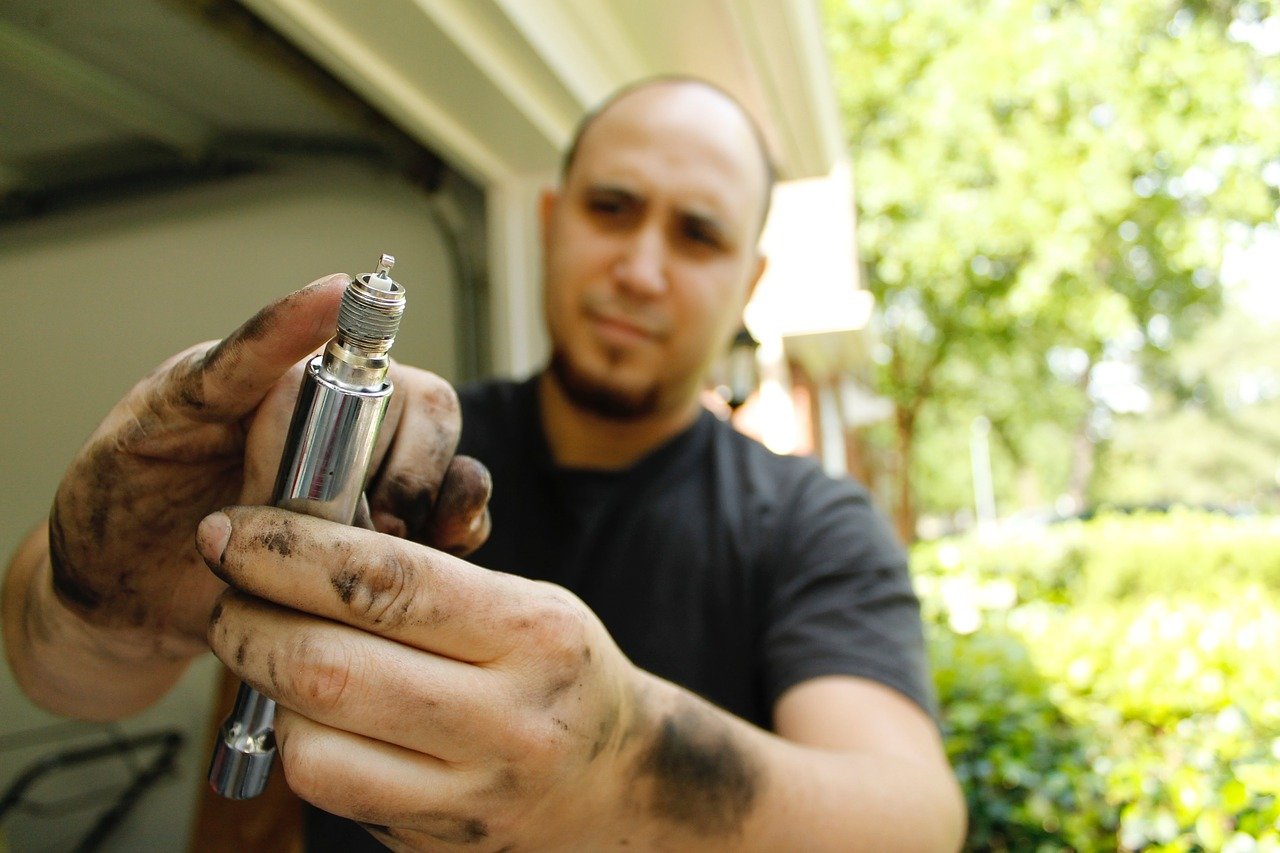Of the many components that make up a car’s drivetrain, tiny spark plugs pack a punch out of proportion to their sizes. Unless your car runs only on an electric motor, this small detonator generates the reaction that propels your heavy machine down the road. Whether your engine has four cylinders or eight, each of those cylinders needs a well-functioning spark plug; how do you know when your spark plugs have stopped performing well, and what should you do at that point? Use these maintenance guidelines to answer these questions.
What Are Spark Plugs For?
The design of motors in gasoline-powered cars centers around cylinders in which circular pistons attached to connecting rods move up and down in response to explosions. The explosions occur when a measured mixture of fuel and air is pressurized; this up-and-down movement is transferred to the rest of the drivetrain to move the car. As the rising pistons compress the mixture, the spark plugs send a spark across a small gap at their tips, causing internal combustion. Your car produces thousands of these explosions per minute when the engine is operating. Note that diesel engines use heated glow plugs rather than spark plugs.
When Should You Change Your Spark Plugs?
Throughout much of the 20th century, car owners changed their spark plugs as part of routine maintenance tune-ups performed every 10,000 miles or so. In these older cars, a crude system containing three other parts (rotor, cap, and coil) produced current and timed the spark and were often replaced at the same time. If you have an older car, your mechanic or auto parts store staff can give advice. Newer cars often house extended-life spark plugs and electronic ignition systems so owners may not need to perform this maintenance until 100,000 miles. Your owner’s manual will provide guidance.
There are exceptions, of course. In the event of a collision, it is important to have your car thoroughly inspected by a top quality car collision repairs specialist. This includes checking the spark plugs for any damage or wear and tear that may have been caused by the impact. Replacing damaged spark plugs as part of collision repair ensures that your car’s engine runs efficiently and safely, reducing the risk of future mechanical problems.
Signs You Need To Change Your Spark Plugs Anyway
No matter the miles you have on your odometer, your spark plugs can start to perform poorly before their predicted end-of-life. If the ratio of fuel to air entering cylinders’ leans too much toward gasoline, the plugs can become overly saturated. If oil gets mixed in, the spark plugs can become gunky. These factors or any other forms of plug corrosion will cause the car’s engine to run rough or misfire. You may also find the car become difficult to start. At that point, you will need to investigate how to change spark plugs.
Does Spark Plug Installation Require a Mechanic?
Changing your car’s spark plugs yourself using a spark plug wrench is highly cost-effective. In case you possess the necessary expertise, you can order a spark plug from reputable OEM parts sellers (you can see them here) and replace the spark plug yourself. In many cases, the task is a relatively easy one if you follow instructions. However, you may or may not be able to take on this service based on three interrelated factors:
- Make and age of the car
- Age of the spark plugs
- Type of spark plugs
When it comes to older cars, accessing spark plugs is often more straightforward due to the engine bays being more open and accessible. However, some car manufacturers have designed their engines in a way that makes spark plugs challenging to reach. Additionally, with extended-life spark plugs, there is a possibility of corrosion and fusion to their cylinder threads after covering many miles. In such cases, removing the spark plugs may become a difficult task, and you may require an expert’s help, such as a qualified mechanic from VW service shop or a similar car maintenance point in your area. These professionals tend to have the expertise and tools necessary to tackle intricate engine configurations and handle tricky spark plug situations, ensuring that your car receives the proper care and maintenance it needs.
Producing a tiny spark that moves a vehicle’s mass, the spark plug is a mechanical wonder. By staying attuned to your plugs’ maintenance schedules, you can be certain your fuel mixture will get the explosive boost it needs.




